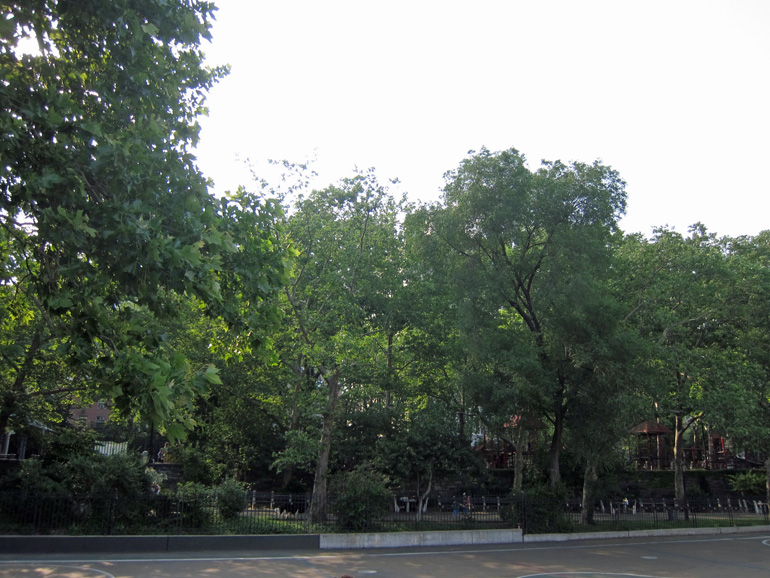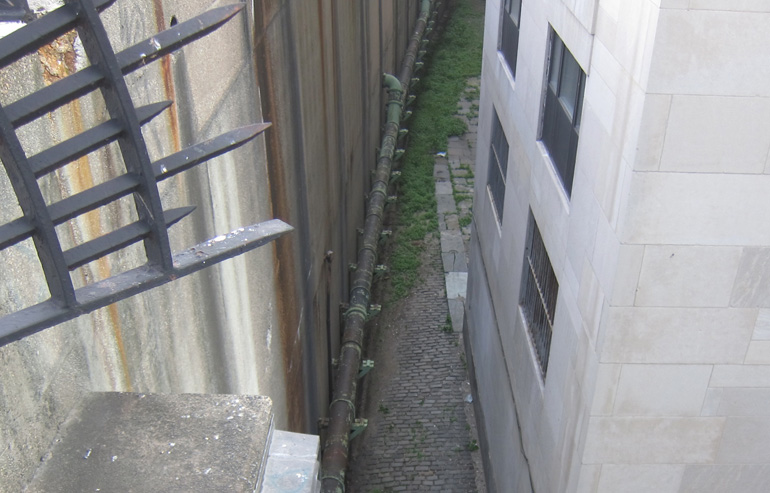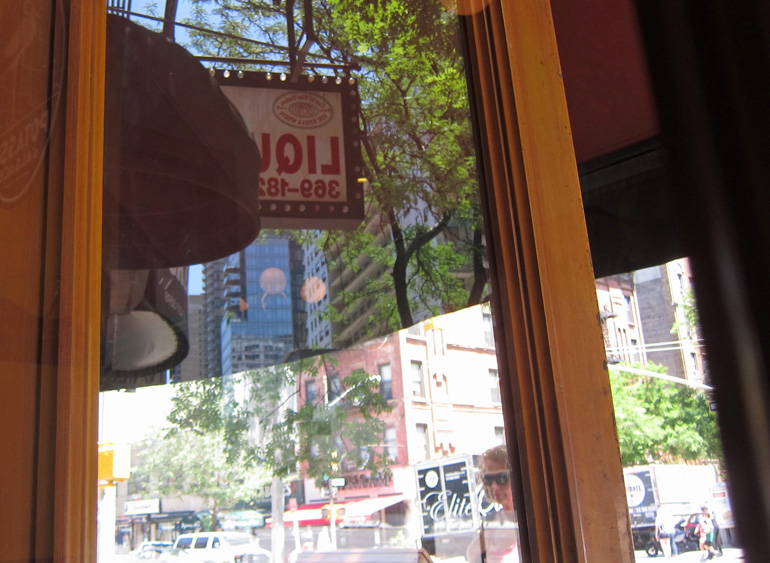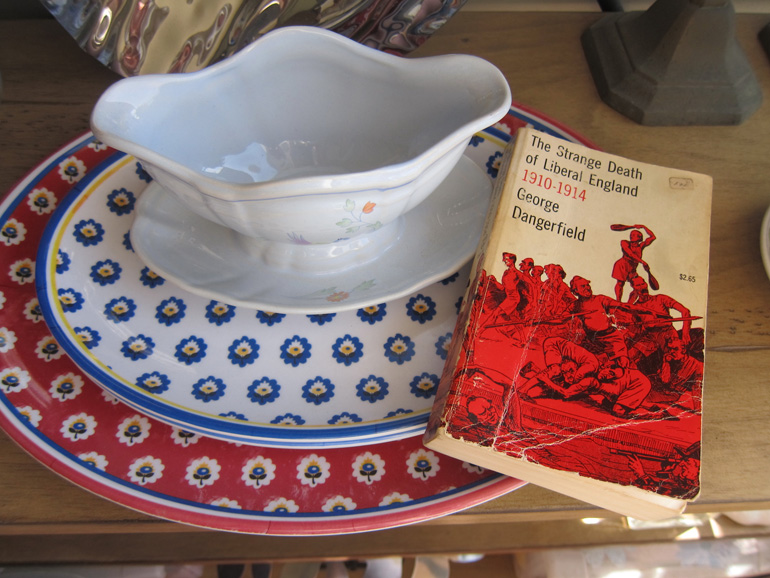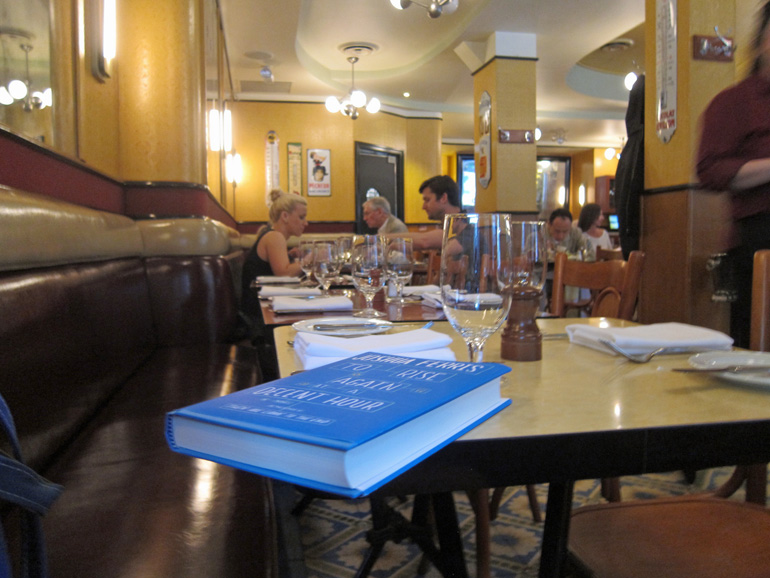Gotham Diary:
Blandishments
9 July 2014
The problem is not Artificial Intelligence. The problem is human intelligence. That’s what we don’t understand. As Jaron Lanier tells Maureen Dowd in today’s column,
We’re still pretending that we’re inventing a brain when all we’ve come up with is a giant mash-up of real brains. We don’t yet understand how brains work, so we can’t build one.
Visionaries talk of building computers that can think better than human beings, perhaps by as soon as 2029. These prognosticators certainly have some idea of what “better” would be. More reliable memory! Greater pattern recognition! Awesome signal/noise filters! We can build all of these things, which is what keeps the visionaries excited. The superior components are already available. The problem is that we don’t know how to hook them up in a way that simulates an actual brain. As Lanier says, we don’t know how the damned thing works.
And it is possible that we never will. One of the many curious things about the brain is that it has evolved to process sensations, but not to experience them. There is a somatic hiatus between our sense organs and our brains, and another one between our brains and our minds. Perhaps the hiatus is actually an incredibly complex junction, where inputs from different receptors are shuffled and regrouped with dizzying speed. The issue might be more than the complexity of the wiring (or the trackage, to keep up junction motif), which, presumably, technological instruments (which are all designed to enhance the powers of our senses) would be capable of mapping. But there might also be a logic of signalling that, because it had no counterpart in our sensual world, could not be described in human language.
Brain research is hampered by immense ethical constraints on direct investigation. Experimenting with uninjured brains is clearly off-limits. We can’t open them up to tinker with their parts, or flood them with chemicals to see what happens, or plug them into alternative inputs. At best, we can explore the damaged areas of brains that have suffered trauma, and then only with a view to relieving the patient’s suffering. Most of our work on brains is indirect, as, for example, by fMRI, and it is not very precise.
We have thoughts, but we don’t understand the physical events that give rise to them. To the best of my knowledge, no one has yet developed a physiological model that shows us what a thought looks like in the brain. That’s the second hiatus that I mentioned, the one that prevents our minds from understanding, in an experiential way, how brains work. It would seem that the evolution of the brain has selected for unconsciousness of the brain itself. We don’t have brains in order to understand them. We have brains in order to understand the world of our senses. The brain itself sits safely removed from that world. What the brain is not safe from, it appears, is the mind, which would like to probe it. But does the mind, embodied as it might be in phalanxes of researchers surrounded by exploratory gadgets, have the tools for such probing? There is no reason to think that it would.
The mind faces so many more interesting challenges!
***
It has always struck me that the search for artificial evidence, and the dream of robots who might replace human beings, is powered by an adolescent impatience with life as it is. It is in the nature of adolescents to be impatient, but modern secular culture, instead of bending away from the religious past toward more adult habits of mind, has replaced the old miracles with miracles yet to be seen. The idea of a forty year-old man collecting and reading superhero comic books makes me despair. How is one to resist the suspicion that imaginary powers figure in what ought to be mature thoughts for dealing with the many problems that face civil society, particularly that of environmental degradation.
Solutions to the environmental problem too often tend to be technological in nature, by which I mean that they allow us to continue doing what we’re doing. Technology will “fix it.” Quite aside from the unrealistic optimism of these schemes, there is the unattractive disinclination to deal with the mindlessness of what we’re doing. Most of our social structures, including the expectations and the facilities that allow and encourage us to degrade the environment, are essentially mindless; they were developed in ignorance of actual conditions. I say this often, but it bears repeating: as recently as two hundred years ago, it was not “conceivable” that the totality of mankind could ever have a lasting impact upon Planet Earth. Even today, much of what we do would be rapidly undone by natural processes if we were to disappear. But there have been many amplifications of our abilities to toxify the world, possibly beyond the power of natural processes to repair the damage. And we can simply destroy the biosphere with atomic weapons. These are not the results of mad scientists, but of mindless technologists — often working for business corporations with no thought whatever of anything but profit.
***
It is difficult to be optimistic — realistically optimistic — about humanity at a time when so many gifted human beings appear to know little more about their own human nature except what they do and don’t like about it. The urge to escape human nature, it is true, is not a new one; the search for transcendence follows ancient and well-worn paths. But the old ascetic goal of setting appetites aside has given way to the pursuit of a refined orgy of niched gratification. The smartphone promises a life of uninterrupted satisfaction, and transforms the merely optimal into the most desirable. There’s nothing wrong with smartphones; the failure lies in the deficient humanism of anyone willing to settle for such blandishments.
Understanding human intelligence can be approached from two directions. The technological limits to direct exploration of the brain have already been stated. But intelligence itself can also be pondered by the mind. It can, and of course has been, approached philosophically. I prefer to consider it phenomenologically (if I use that term aright), by considering the many works of human intelligence, together with its many struggles with the urges of the brain that are not considered intelligent. How have we made the world we live in? What were — and what were we not — thinking?
Daily Blague news update: Shocking.


